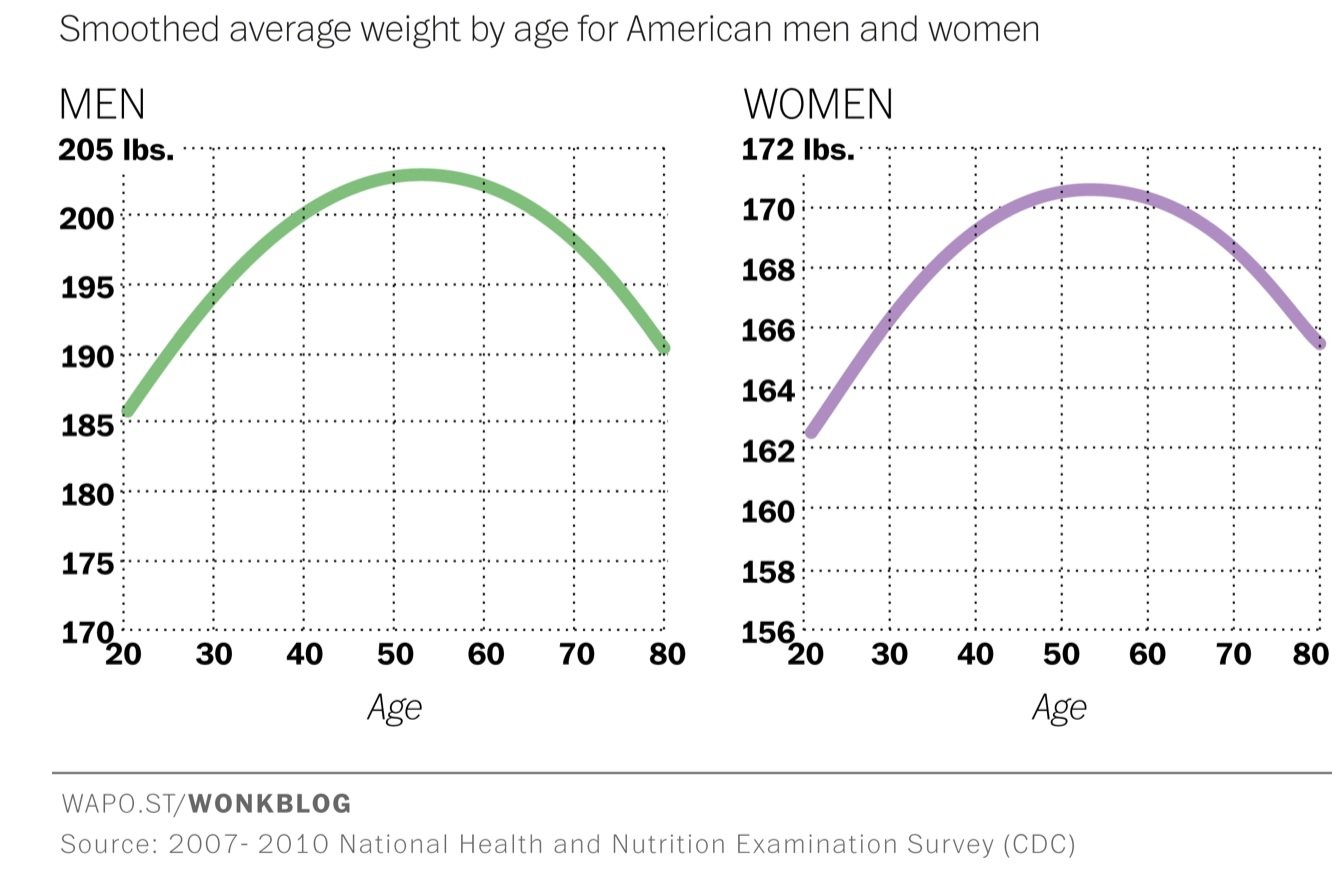Why Do People Gain Weight As They Get Older?
Like just about everything going on inside us, there is likely an evolutionary reason for this. If you are in your late teens/20s, you are at your athletic peak, which for nearly 300,000 years meant you were doing the hunting and gathering. Exploding with energy when called upon to both fight and flee. As we human creatures progressed through what became civilization (and incrementally increased lifespan until modern society, where it soared), and as we individual humans age, we were not called on to do such things. Thus you weren’t the one getting to eat immediately what you killed, so to speak. Your ancestors needed to store energy—which is what weight actually is, in the form of adipose tissues: simply stored energy. Biological changes (mostly), then, are the reason for this. The need to store energy at older ages. Our lean muscle mass decreases (slowing our metabolism); growth hormone decreases; basically every hormone involved in burning calories rapidly decreases. Lipid turnover slows down, and so on. You get the picture. If you are my age, we often see and feel the picture. This is why even if you exercise and eat the same at 45 as you did at 20, you are likely gaining weight.
You can’t control 300,000 years of evolution, nor can you just rely on willpower to “eat less and exercise more” — a philosophy still embraced by many (e.g. David Goggins, et al.) but that at the macro level isn’t supported by any data. Willpower is no different than a muscle; it depletes with time. You can and should develop positive habits (or, to use the terminology of Dr. Jud Brewer ,who I was fortunate enough to have on my podcast, “habit loops”) such as exercising, even as simple as a walk when the sun comes up every single morning. Habits become embedded in our subconscious and do not rely on willpower. Dr. Brewer has a free app that you can use that can get you out of negative habits (e.g. overeating) and into positive ones — so modern society isn’t all bad.
But speaking of modern society, here is the nefarious twist, but one that also offers a way out. Society has very much gotten in our way, beyond those evolutionarily and biological constraints. Compare the age/weight ratio of still existing hunter/gatherer tribes, and you don’t see much age-related weight gain. Why is that? Our modern-day careers, for the very most of us, hit their prime in our 40s and 50s (see the graphs above and notice the correlation), as does raising families, having less play time, and less downtime in general. Stress rises, and stress is a major cause of both overeating (to temporarily numb the stress) and releasing cortisol, slowing down our metabolism even more. Most notably to me, so too does our ‘spontaneous exercise’ diminish considerably — we don’t walk up hills or stairs; we take elevators. We don’t have time to “play” while we work.
To the punchline of this article versus the tens of thousands of others on the same topic. Yes, you can cut calories or try supplements or change your habits. Please do if you want to live longer (the weight drop on those curves post-60+ is likely a result of two things: (1) we eat a bit less after 60, but sadly also (2) those who weigh the most tend to die the earliest). But what I have embraced recently is a ton of spontaneous exercise. I sprint up stairs for absolutely no reason and do the oft-told but rarely-tried advice of parking at the farthest end of the parking lot by stores. In fact, I’ve started walking to stores versus driving. This all adds up. Over just two weeks of doing this, with the only other change being brief resistance training (lifting weights) three days a week, I’ve slowly started to lose weight and get closer to that of my 18-year-old self.
So walk, run, skip, jump, and play for no reason. It works! And I can’t think of a simpler solution for solving the “we gain weight as we age” conundrum than having fun.
– Mike Spivey
